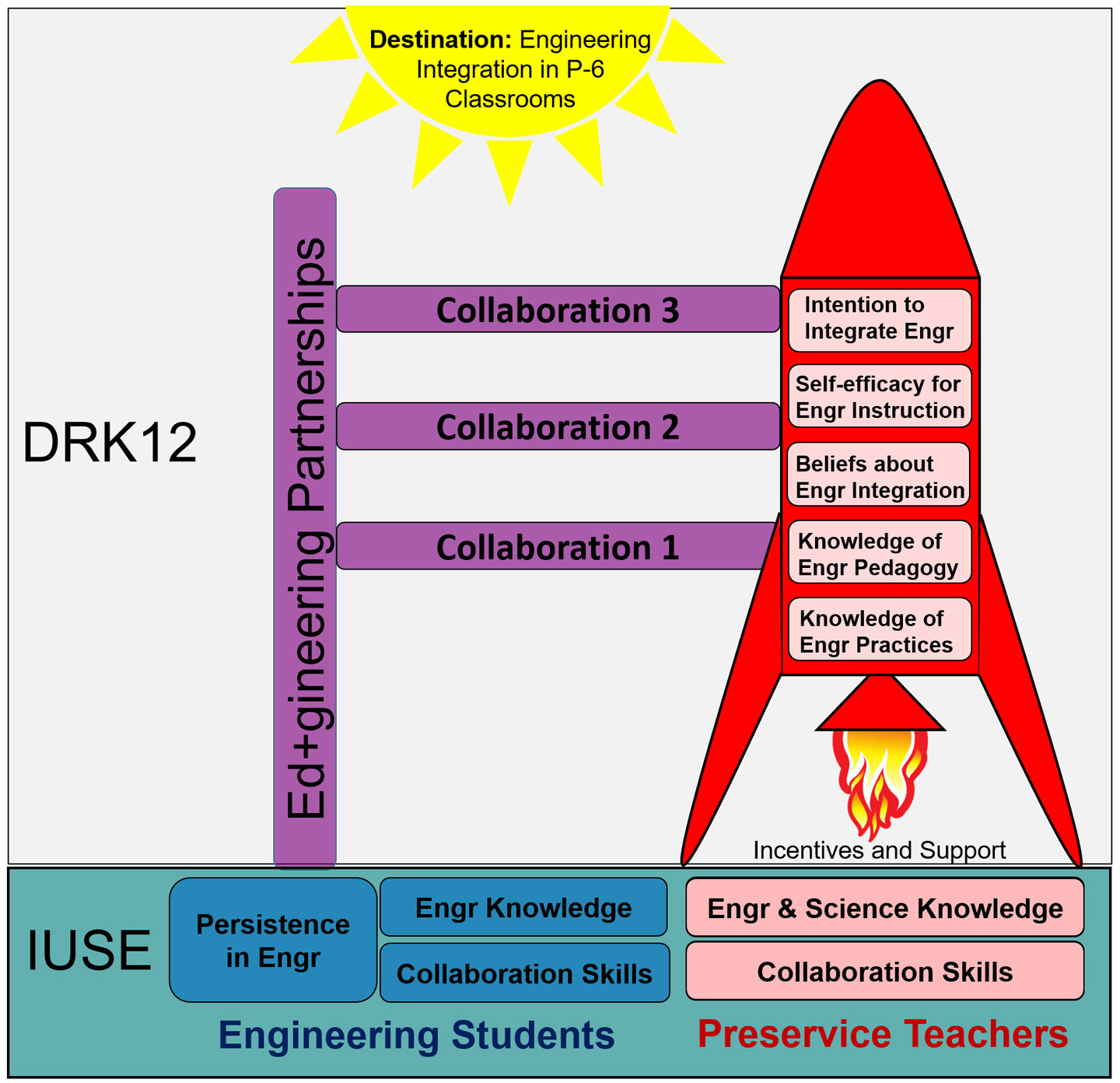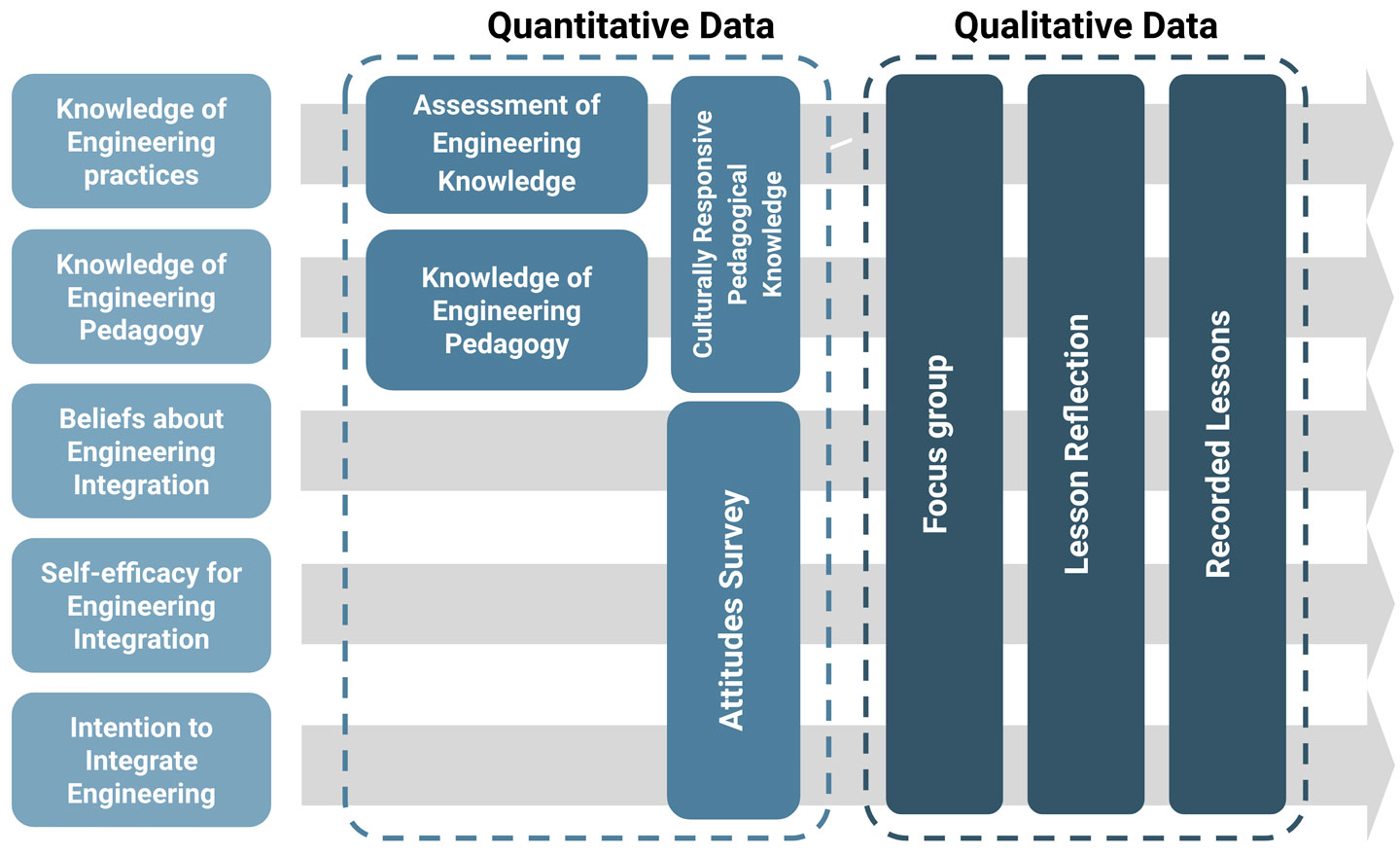
The National Science Foundation’s Discovery Research PreK-12 program (DRK-12) seeks to significantly enhance the learning and teaching of science, technology, engineering, mathematics and computer science (STEM) by preK-12 students and teachers, through research and development of STEM education innovations and approaches.
Compelling Need
Recent efforts have introduced engineering standards into P-6 curricula, however most P-6 PSTs are not exposed to engineering in their professional training, and are therefore unprepared to integrate engineering into their instruction (Hsu, Purzer & Cardella, 2011).
Project Goals
- Enhance Preservice Teachers’ (PSTs) ability and intention to integrate engineering into their instruction.
- Develop, implement, and evaluate an innovative instructional collaboration model that integrates engineering into pre-service teachers’ (PSTs’) academic preparation.
Our DRK12 project’s research builds from the foundation established in our IUSE project. While the primary goal of IUSE is to develop undergraduate students’ engineering and science knowledge, DRK12 focuses on cultivating the pedagogical knowledge and attitudes PSTs need to integrate engineering into their instruction. As depicted in the figure below, knowledge of engineering and collaboration skills provide the platform from which preservice teachers can launch toward the ultimate goal (or destination!) of integrating engineering in P-6 classrooms. DRK12 scaffolds the preservice teachers’ journey through our three Ed+gineeirng collaborations in order to help them develop the pedagogical knowledge and attitudes they’ll need to be successful: knowledge of engineering practices, knowledge of engineering pedagogy, positive beliefs about the integration of engineering integration in P-6 classrooms, self-efficacy for engineering instruction, and an intention to integrate engineering into their future instruction.

Research Questions
- How does Ed+gineering influence P-6 PSTs’ a1) knowledge of engineering practices, a2) knowledge of engineering pedagogy, b) beliefs about engineering integration, c) self-efficacy for engineering integration, and d) intention to integrate engineering into classroom instruction?
- How do P-6 PSTs’ knowledge, beliefs, and self-efficacy for engineering integration influence their intention to integrate engineering into their instruction?
- What are the barriers and enablers of engineering integration in the P-6 context identified by PSTs who did and didn’t participate in the intervention?
- To what extent do Ed+gineering graduates integrate engineering into P-6 instruction in their first year of teaching? What are the barriers and enablers of engineering integration in the P-6 context identified by Ed+gineering graduates?
- How does the availability of resources and support incentives, including an engineering education workshop, impact Ed+gineering graduates’ integration of engineering into P-6 instruction?
DRK12 uses a mixed method approach to assess the project’s impact and to build a model for predicting PSTs’ intention to integrate engineering. Quantitative instruments including objective tests and surveys are triangulated by qualitative data from reflective surveys, focus group interviews, lesson observations, and lesson artifacts.

